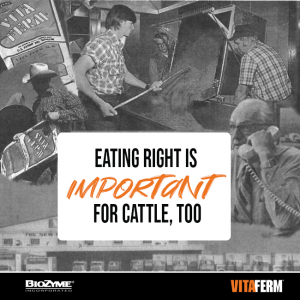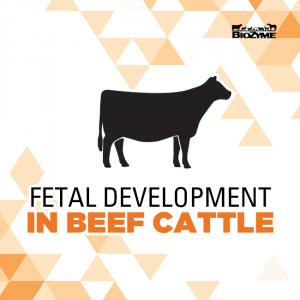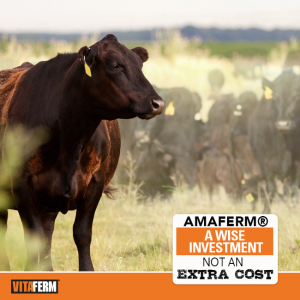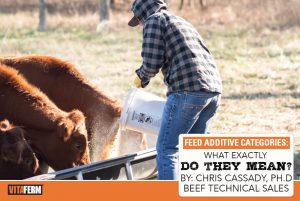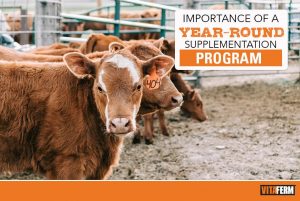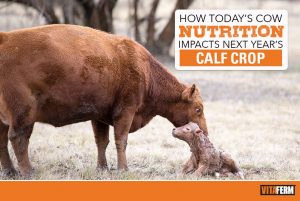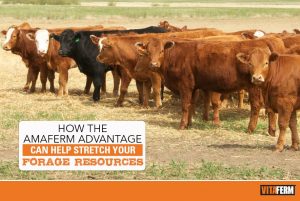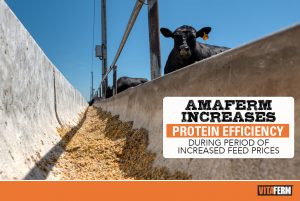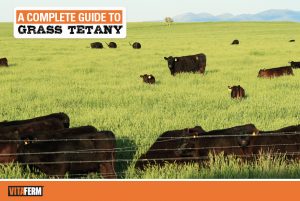Sixth & Final in a Series based on 1980s Ads Featuring BioZyme® Founder Wouldn’t it be nice if livestock could tell you what they need and when they need it? For instance, when the grass is greening up and cows are being turned out to pasture, if cow number 782 could say, “Mr. Producer, I am […]
Category: Nutrition Articles
Eating Right is Important for Cattle, Too
Fourth in a Series based on 1980s Ads Featuring BioZyme® Founder Who doesn’t enjoy a properly prepared, balanced meal? For some, an ideal dinner might include a juicy, grilled steak packed with zinc, iron, protein, amino acids and multiple B vitamins, a green leafy salad filled with fiber, Vitamins A & C, a baked potato, that […]
Fetal Development in Beef Cattle
One of the most rewarding days of the year for cow-calf producers is sale day. However, watching a calf crop grow from calving to weaning brings many challenges. Braving the blowing snow to save a calf from the ice and cold to ensure survival to make it to the sale barn is a challenge. Waiting […]
Amaferm® – A wise investment, not an extra cost
Chris Cassady, Ph.D., BioZyme® Inc., Beef Technical Sales Manager Profitability in beef production is dependent upon output revenue exceeding input costs. Elevated calf prices have pushed gross returns yet profit margins have shrunk due to the rising cost of production. A general rule of thumb is that at least 60% of your operational expenses are […]
Feed Additive Categories: What Exactly Do They Mean?
Feed Additive Categories: What Exactly Do They Mean? Chris Cassady, Ph.D., Beef Technical Sales Manager, BioZyme® Inc Global food demands continue to outpace available resources. Consequently, producers are continually asked to “do more with less” as urban sprawl, regulations and consumer concerns continue to add pressure to the agricultural industry. Animal performance is a major influence […]
Importance of a Year-Round Supplementation Program
Chris Cassady, PhD, Beef Technical Sales Manager, BioZyme® Inc., St. Joseph, MO Cow nutritional requirements fluctuate throughout the annual production cycle. For spring calving herds, most calves have been weaned and cows are in midgestation. Collectively, this current timepoint represents the lowest nutritional requirement for that cow. Available forage quality decreases at the same rate […]
How Today’s Cow Nutrition Impacts Next Year’s Calf Crop
By Chris Cassady, Ph.D., BioZyme Inc. It’s well established that the nutritional requirements of cattle fluctuate throughout the year and depend on the production cycle of the cow. Although the nutritional cost for maintenance remains somewhat constant, there are many factors that influence these added nutritional “taxes.” Growing heifers have elevated needs to support their […]
How the Amaferm Advantage can help Stretch your Forage Resources
Between the widespread drought, increased need for hay resources and lack of pastures, cattle producers across the country are looking for ways to cut their input costs. During a time when they should be turning cows out to pasture, those pastures aren’t as nutrient dense as normal, and hay is at a premium, making the […]
Amaferm Increases Protein Efficiency during period of Increased Feed Prices
. By Jack Oattes, M.S., BioZyme Inc. Protein is critical to the performance of all beef cattle, and like other key nutrients it is required for bodily functions such as maintenance, growth, lactation and reproduction. Given that feed commodity prices, specifically protein sources like soybean meal have reached near record high prices in recent months, […]
A Complete Guide to Grass Tetany
Spring has arrived and soon cattle producers will be thinking about turning their cattle out on nice green pastures. Spring grazing is always an exciting time, but before you turn out those pairs to green grass, consider a hidden concern of grazing. Grass tetany can be a challenge for producers during spring and early summer […]

